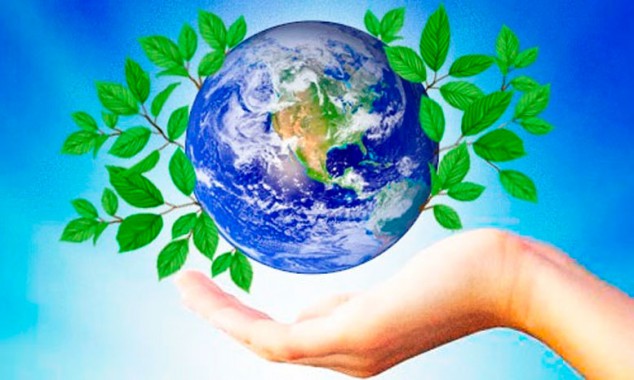




















Sunday, Mar 22, 2020 12:30 [IST]
Last Update: Sunday, Mar 22, 2020 06:48 [IST]
Dr DEBAPRIYA MUKHERJEE
The novel SARS-CoV-2 coronavirus that caused a large scale COVID-19 epidemic and spread to more than 150 countries is the product of natural evolution, according to findings published in the journal Nature Medicine. The scientists, by comparing the available genome sequence data for known coronavirus strains, advocated that the virus was not made in a laboratory or otherwise engineered. Biologists have known for years that more than half of the diseases that infect humans come from animals. By disrupting the natural world, humans increase their own risk of epidemics. Increasingly, these zoonotic diseases are linked to environmental change and human behavior. The disruption of pristine forests driven by logging, mining, road building through remote places, rapid urbanization and population growth is bringing people into closer contact with animal species they may never have been near before. Now we have realized that this mindless pursuit of capital to focus the GDP and prosperity may cause severe health issue.
Many countries go on lockdown, factories are closed and international air travel grinds to a halt. Prime ministers in many countries have closed all schools and universities. Practically coronavirus has disrupted everyday life throughout the world through travel bans, flight restrictions and the cancellation of sporting and cultural events. Despite the costs and inconveniences on account of these actions, the general public is generally even approving. The actions taken to contain the COVID-19 coronavirus pandemic causes a sharp reduction in global carbon emissions with reduction of particulate matters, oxides of nitrogen in ambient air. This air pollution is responsible for at least 8 millions early deaths a year. At just two months of reduction in pollution levels likely saved the lives of 4,000 children under five and 73,000 adults over 70 in China alone as reported by the scientists. Deaths from the coronavirus itself till date is quite less compared to deaths due to air pollution. The respiratory infections on account of coronavirus may well have a more serious impact on city dwellers and those exposed to toxic fumes than on others residing in rural area. It may be mentioned that air quality may have increased the death toll of a previous coronavirus outbreak, the SARS pandemic of 2003. One study of SARS patients found that people living in regions with a moderate amount of air pollution were 84 percent more likely to die than those in regions with cleaner air. Scientists has established proven link between poor air quality and premature deaths. There is strong evidence that the lives saved from this reduction in pollution caused by economic disruption from COVID-19 exceeds the death toll from the virus itself.
As reported, CO2 emissions were decreased by at least 25% from February 3 to March1 in this year in China. A satellite that detects traces of human activity — tailpipe emissions from cars and trucks, fossil fuel burned in power plants and other industrial activities — shows striking reductions in pollution across China and Italy since the outbreak first started. The impact of this reduction of air pollution is quite remarkable though this decrease will be temporary. The world’s drastic actions to contain coronavirus may provide valuable lessons for climate action and clearly focused that procrastination, short-termism and scientific denial are the hallmarks of our inaction on climate change – but the coronavirus provides an opportunity for us to kick those long-standing habits. At the point of global emergency, politicians who appear to not believe in science are putting us all at risk. This statement may apply equally to coronavirus and climate change.
The role of individual action to change the lifestyle as a result of lockdown, less travelling, less meat consumption, stay in home and many more in mitigating the climate crisis is still being debated but actions taken to contain coronavirus has clearly explored the urgent need to restrict population explosion, unprecedented destruction of nature , mindless exploitation of earth’s resources and human’s endless greed for luxury life style as well as necessity towards a life of simplicity. This is the golden opportunity to change hearts and minds of the people for their behavioral change to mitigate climate crisis citing example of pollution reduction (both water and air) on account of actions taken to contain coronavirus epidemic. Also, the response to coronavirus teaches that people can still work together to do the right thing. We need hope, and trust in each other, to tackle the climate crisis. World political leaders strongly advocate to follow the stipulated actions to prevent coronavirus epidemic but the same politicians attack scientific consensus on climate change because climate skeptics probably see substantial political and economic payoffs by delaying climate action.
The revival of the global economy after the pandemic may accelerate the emissions of planet-warming gases depending on the approach of world’s big economies to enact green growth policies or continue to use fossil fuel industries to overcome this economic recession that already spreads across the world due to the coronavirus pandemic. If political leaders or big companies focus on compensating their loss during the outbreak of this virus, It may pose a serious threat to long-term climate change action by compromising global investments in clean energy and weakening industry environmental goals to reduce emissions.
Thereby coronavirus is not the only global crisis, we are also facing the climate crisis that is expected to be more devastating. Most importantly the response to the two crisis is starkly different though the climate crisis is structurally very similar to the coronavirus crisis. Both are characterized by an escalating probability of disaster. In the case of COVID-19, the disease caused by the coronavirus is due to the nature of contagion and it is transmitted from each patient to more than one person and so rates of infection tend to accelerate. In the case of climate change, the increased risk of initiating feedback loops, which amplify the warming trend and crossing tipping points as global temperatures rise have the same effect. Tackling either problem will disrupt lifestyles of people in a number of ways, some of which are quite similar – consider the drastic rise in staycations elicited by the coronavirus crisis. In both cases there is a coordination problem: the efforts of any one individual will achieve nothing to mitigate the risk unless accompanied by efforts from many others.
At the same time, we cannot expect the similar response despite similarities of the two crisis because the response to the coronavirus crisis has arguably been far greater than the response to the climate crisis. Coronavirus is a recent, self-evident and rapidly escalating threat. Each day brings new evidence of the direct consequences of the outbreak, and these consequences are rapidly moving closer to home.
Climate change is the evident of floods, hurricanes, forest fires, and extreme weather events that have become more frequent and severe over the years. Although climate change draws passionate discussions in many forums, there is inadequate public clamor for immediate action. The policy lethargy and behavioral inertia are the major cause of inaction to climate change. Its effects are not always immediate and visible. Many individuals probably do not see a clear link between their actions and the eventual outcome. This reduces the willingness to alter lifestyles and tolerate personal sacrifices for the collective good. In contrast, Coronavirus is forcing an immediate policy response and behavioral changes. Its causality is clear and its onset quick.
Most countries have sincerely follows the regulations together on Coronavirus. Citizens also seem to be following the advice of public health officials. But surprising question is that this Coronavirus policy model can be applied to climate change? It may be mentioned that t policies that worked well for Coronavirus might not be effective for climate change. However steps taken to reduce the risk of coronavirus is obviously the cause of economic recession but these offer great opportunities to both reduce greenhouse gas emissions with simultaneous outcome of lower energy bills, better air quality and so on. People are well supportive of policies if they can explain the mechanism through which the policy operates. There is a simple and intuitive mental model of how COVID-19 spreads (through people) and how we can stop its spread (keep infected people isolated). Thereby communication appears to be key. Creating intuitive mental models and apt metaphors to explain the link between our consumer behavior, carbon emissions and a changing climate is a tall order. But if advocacy and lobby groups can do so, it might facilitate a sense of responsibility and agency. Of course there must be political will.
E-mail dpmcpcb@yahoo.com
